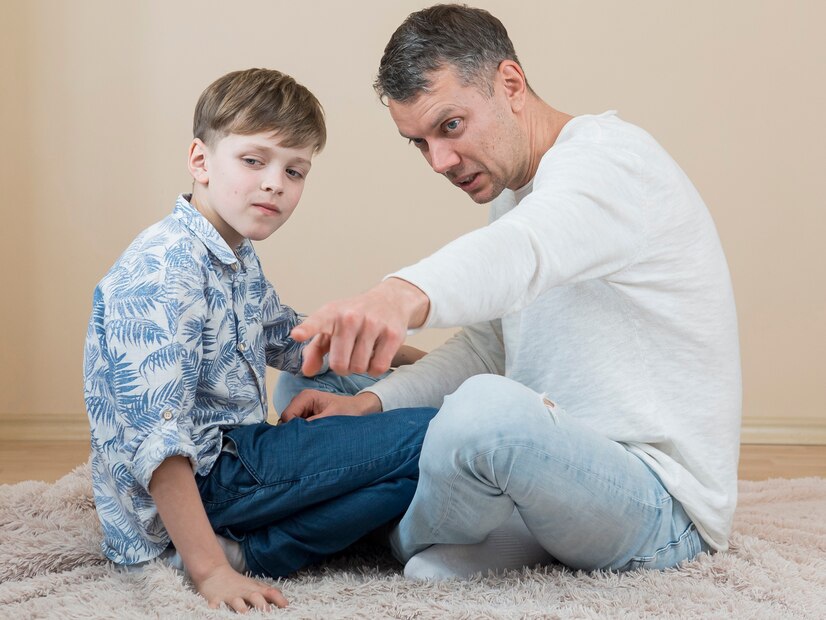
How to Teach Boys About Changing Bodies
Helping Boys Understand Their Changing Bodies
Puberty can be a confusing, sometimes overwhelming time for boys. With bodies changing, voices deepening, and emotions running high, it’s no surprise that many boys feel unsure of what’s happening or how to talk about it. For parents and caregivers, guiding boys through puberty isn’t just about biology—it’s about laying the groundwork for confidence, respect, and self-awareness.
Talking about body changes may feel awkward at first, but avoiding the subject can leave boys feeling unprepared or isolated. This guide offers expert-led, research-informed, and parent-tested advice to make the puberty talk for boys both practical and empowering.
Whether your son is eight or thirteen, now is the right time to open the door to honest conversation. Here’s how to do it well.
Understanding the Core: Why Boys Need Body Changes Education

What Is Puberty?
Puberty is the period when a child’s body begins to transition into adulthood. For boys, this typically begins between the ages of 9 and 14. It involves a cascade of hormonal changes that trigger physical, emotional, and cognitive development.
Common body changes for boys include:
- Growth spurts in height and muscle
- Enlargement of the penis and testicles
- Voice deepening
- Body and facial hair growth
- Acne
- Increased sweating and body odour
- Erections and wet dreams
Why Early Education Matters
According to the NHS and numerous child development studies, boys who receive age-appropriate information before puberty starts tend to handle the transition better.
They are more likely to:
- Feel confident about their bodies
- Practice good hygiene
- Ask questions instead of hiding confusion
- Respect others going through similar changes
Pro Tip: Start early and talk often. Don’t wait until body changes begin to open the discussion.
Quick Guide / Checklist: Key Puberty Preparation for Boys
- Use real anatomical terms without embarrassment
- Talk about changes before they happen
- Emphasise that everyone develops at different rates
- Normalise feelings like mood swings or embarrassment
- Provide hygiene guidance (showering, deodorant, shaving)
- Reassure them about erections and wet dreams
- Discuss consent and respectful relationships
- Check in regularly, not just once
Secret Tip: Boys may find it easier to open up during casual activities like walking the dog or driving to school. Use those moments wisely.
Step-by-Step Guide: How to Practise Body Changes Education
1. Choose the Right Time and Setting
Avoid sitting them down under a spotlight. Instead, pick neutral moments like walks, meal prep, or evening routines. This keeps the conversation relaxed and less intense.
2. Use Clear, Age-Appropriate Language
Explain the basics:
- “Your body is starting to grow and change because your brain sends signals to your testicles to start making testosterone.”
- “You might notice hair under your arms or that your voice sounds different. That’s all normal.”
3. Talk About Hygiene Habits
Teach them to:
- Shower daily
- Use deodorant
- Wash their face regularly to help with acne
- Change underwear and socks every day
Important: Hygiene talks should never feel like a punishment or shame. Present them as self-care skills every young man needs.
4. Discuss Erections and Wet Dreams
Explain what they are and why they happen:
- “Your body is releasing sperm as part of growing up. It’s nothing to be embarrassed about.”
- “These changes don’t mean you’re ready for sex, but they are your body’s way of maturing.”
Use this as a chance to link physical changes to emotional responsibility.
5. Address Emotional Changes
Talk about mood swings ,frustration, and sensitivity. Let them know it’s okay to cry, feel uncertain, or want space.
Ask questions like:
- “Have you ever felt like you were really angry and didn’t know why?”
- “What helps you feel better when your emotions are strong?”
6. Revisit the Topic of Respect and Consent
It’s never too early to start discussing boundaries.
Reinforce that:
- Everyone has a right to their own space
- Consent matters in all relationships, not just romantic ones
- Real strength includes kindness and empathy
Best Practices & Additional Insights

Create a Judgement-Free Zone
Make sure your son knows he can come to you without fear of being laughed at or lectured. Even if his questions catch you off guard, stay calm and curious.
Use Books and Trusted Resources
Some boys prefer to learn privately before talking.
Offer books like:
- What’s Happening to Me? by Usborne
- Guy Stuff: The Body Book for Boys by Dr Cara Natterson
Don’t Forget Mental Health
Puberty can increase anxiety or self-esteem issues.
Keep an eye on:
- Changes in sleep
- Withdrawal from friends
- Anger or sadness that won’t lift
Speak to a GP or school counsellor if needed.
FAQs
When should I have the puberty talk for boys?
Start introducing body changes education between the ages of 8 and 10. Don’t worry about saying too much—you can always build on it.
What if my son doesn’t want to talk?
Respect his boundaries. Leave age-appropriate books in his room or suggest watching a puberty-related video together.
How can I make the talk less awkward?
Use humour, real-life examples, or shared media (TV shows, books). And remember, it’s okay to admit it feels a bit weird.
Should I talk about sex too?
Eventually, yes. Start with the basics of body changes, then build towards reproductive health, relationships, and consent.
What if my son develops earlier or later than his peers?
Reassure him that everyone grows at their own pace. Avoid comparisons and focus on confidence.
Conclusion: Raise Confident, Informed Young Men
Helping boys navigate puberty is one of the most important things you can do to support their mental and physical health. When you start the conversation early, use honest language, and create space for questions, you do more than teach biology—you build trust.
Remember: boys don’t need perfection; they need presence. They need someone who will explain, listen, and laugh with them when things get awkward. Be that person.
Get Involved: What questions has your son asked about puberty? What helped you start the puberty-conversation Share your experiences in the comments below or with your parenting circle.


